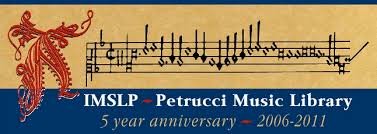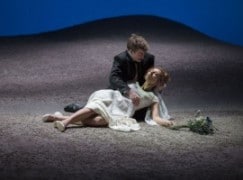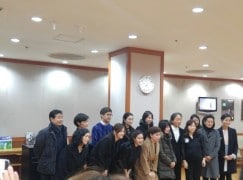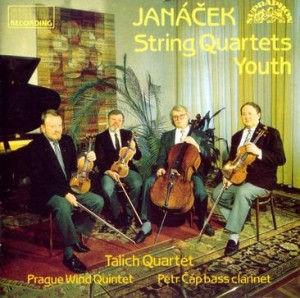This is Aretha Franklin asserting ownership of Natural Woman from songwriter Carole King.
At the Kennedy Center earlier this month. Just up online. Mesmeric.
Compared to: (a) The writer sings.
And (b) Aretha’s first version, from 1967.

This is Aretha Franklin asserting ownership of Natural Woman from songwriter Carole King.
At the Kennedy Center earlier this month. Just up online. Mesmeric.
Compared to: (a) The writer sings.
And (b) Aretha’s first version, from 1967.

Dance sites are reporting the death on Sunday of Jean-Albert Cartier, a formidable organiser who founded the Ballet Theatre Francais in Nancy, the Festival d’Anjou, and the summer academy Europe Danse in Grasse.
Born in Marseille in 1930, he was the founding director of the Chatelet theatre through the 1980s, general administrator of the Paris Opera 1989-91 and, from 1994 general director at the Opera in Nice.
Until 1999 he was president of Unesco’s International Dance Institute.

More here.
There’s a rising surge of anger among composers and musicians at the decision by Edward Guo, owner of IMSLP, to put the works they have stored in his site behind a paywall.
IMSLP, founded in 2006, is a wiki-type resource for music scores and recordings. According to its Wikipedia entry, the site carries over 300,000 scores and 35,000 recordings for over 93,000 works by over 12,000 composers.
That’s some database, and until now it has been free to access.
But on December 27, in the dead holiday period, the resourceful Mr Guo introduced a subscription model that restricts access to the website. Unless you a $22.80 yearly subscription you will have to wait 15 seconds before you are allowed to view a file – even if it is a file that you yourself own and uploaded. Fifteen seconds can seem like an eternity when all you want to do is check a bassoon part in a copyright-free Tchaikovsky symphony.
Regular users are telling us they won’t visit the site again.
Your thoughts?

Here’s the owner’s explanation:
Hi all,
As some of you may have noticed, there have been a few changes to IMSLP over the past few days, including the new logo. In addition to those changes, there is one more major change that will be implemented shortly, and about which I would like to give a bit more background.
I’ve had some fairly extensive discussions with music librarians and IMSLP contributors recently, and I’ve been thinking about a few of the issues raised, especially with respect to preservation and sustainability. Librarians are growing increasingly worried about these issues, and after some consideration I agree with their concerns. In particular, as IMSLP grows bigger, more complex and more engrained into the fabric of the classical music community, it now seems necessary to think hard about the future and how we can sustain IMSLP for centuries to come.
This is especially true with respect to funding. I have so far largely avoided discussing this topic in public because the income we receive from various sources have been enough to maintain the site so far, but I increasingly believe that this level of funding is not sustainable in the long run. We are not, like traditional music libraries, bound by the service of a conservatory, university or publisher, but rather can do things that traditional institutions are not willing to do, because we serve only musicians and music lovers. But everything is a tradeoff – we also do not have the funding infrastructure these traditional institutions have, and over the past few years I’ve frankly exhausted my imagination in searching for new realistic sources of funding for IMSLP.
And so I will announce here that a subscription system for IMSLP will be put in place. But this will not be a traditional subscription model – in particular, no file will be blocked from access by the public. Rather, a subscription will permit a member to download files without having to wait a certain number of seconds, eliminiate some of the advertising on the site, and a few other benefits. I see this as a way to both preserve IMSLP’s philosophy of open access and to secure IMSLP’s future.
But IMSLP is a volunteer effort, and we recognize the time and work put into the site by IMSLP’s most active and prolific contributors. For this purpose, all existing users who have more than a certain number of edits will be granted an automatic 10-year subscription, and new contributors who contribute a certain amount of quality work will also earn free subscriptions.
Please feel free to post any questions in this thread or by e-mail to membership@imslp.org.
Best,
Edward
Readers of Place de l’Opera, the Dutch magazine, have voted for their best show of the year.
To general surprise and delight, it’s a Floris Visser production of Gluck’s Orphée et Eurydice at the breadline-funded Nederlandse Reisopera, a peripatetic company the government sought to abolish three years ago.
Here are the results:
1. Orphée et Eurydice (Nederlandse Reisopera)
2. Lohengrin (Koninklijk Concertgebouworkest)
3. Dialogues des Carmélites (De Nationale Opera)
4. Benvenuto Cellini (De Nationale Opera)
5. Der Rosenkavalier (De Nationale Opera)
More here.

photo (c) Marco Borggreve
Myung Whun Chung conducted his last concert today after ten years as music director.
The future of the orchestra is shrouded in gloom.
The former CEO, sacked for brutal harassment, has called on staff and the Chung family to cooperate with the police inquiry. She appears to have bought the allegiance of local media.
Here’s the final post-concert selfie of the Chung era.

The Spanish town of Torrevieja, in Valencia, is justly proud of its new conservatoire, built at a heavy cost to the public purse. But when they came to test the concert hall, there was no entrance for a piano to get into the building.
And when they finally squeezed one inside, the elevators were not designed to carry its weight.
Read about a sorry Spanish shambles in El Mundo here.

William Osborne, who has monitored exclusion policies on grounds of gender and race at the Vienna Philharmonic for the past decade, is happy to report that some things are changing for the better.
William writes:
The last three years have brought some important gains in the number of women in the Vienna State Opera Orchestra/Vienna Philharmonic. The Opera formation now employs fourteen women, and ten of them have been tenured into the orchestra’s Philharmonic formation.
Between 2012 and 2015, the State Opera Orchestra hired three new women violinists, and a woman principal bassoonist. The standards have been very high. Two of these violinists are winners of prestigious international solo competitions, and bassoonist Sophie Dartigalongue is also an active soloist. Ms. Dartigalongue’s employment as principal bassonist is especially notable because women in principal positions are rare in many orchestras. The Chicago Symphony, for example, has had only two in its entire history.
Read the full report here.

Vienna Phil blind audition in progress
Yves Riesel, the Qobuz founder, has told out colleagues at resmusica that his struggling classical downloads and streaming site has been saved by Denis Thébaud, owner of the video games company, Xandrie. Qobuz, operating in France, went into receivership last month.
According to Riesel, Xandrie will integrate Qobuz into its platform and cover Qobuz losses for the next three years.

We have received reports of the deaths of Petr Messiereur, 78, and Evzen Rattay, 70, first violin and cellist of the Talich Quartet, one of the finest to emerge from the Czech lands.
Evzen played from the foundation of the quartet in 1964 to 1997, Petr joined six years later and left at the same time.
The quartet was named by its original first violin after his uncle, the great Czech Philharmonic conductor Vaclav Talich. They made numerous recordings in France and toured worldwide.

‘Through its annual Christmas broadcasts, the Choir of King’s College, Cambridge has become a centrepiece of the festive tradition for families around the world,’ begins Disgruntled of Chichester.
Then:
‘After an hour, Charlie and I rejoined the queue and prepared to wait another hour until we were requested to rejoin the queue! The time now was 1.15pm and we were now bunched up ready to be asked to move forward in 30 minutes! Eventually we proceeded to the Chapel ,the time now 1.50pm. We managed to get seated in the seventh row from the front and I was pleased with our seats. At 2pm the Organ Recital started and I then realised we were being subjected to an hour long Recital!
‘There were 13 individual movements and they were awfully dull and uninspiring. We really wanted to get on with the Carol Service!…
‘We then had another reading from the Representative of the City of Cambridge and it went on and on! It was so dull.A few Carols inbetween and then another dull and monotonous Reading from the Master of the Choristers ! By this point we had heard only three recognisably famous hymns…’
More of the same here.
It’s just not like that on the telly.

The top 25 classical albums put together sold just under 9,000 copies in the US, the world’s largest market, according to Nielsen Soundscan.
That’s the state of the record business, end of 2015.

Her version:
